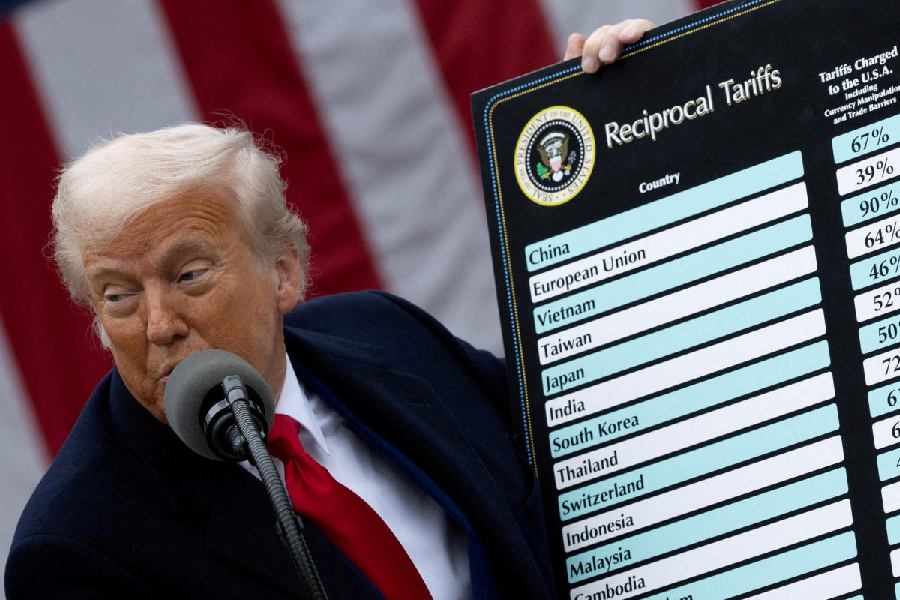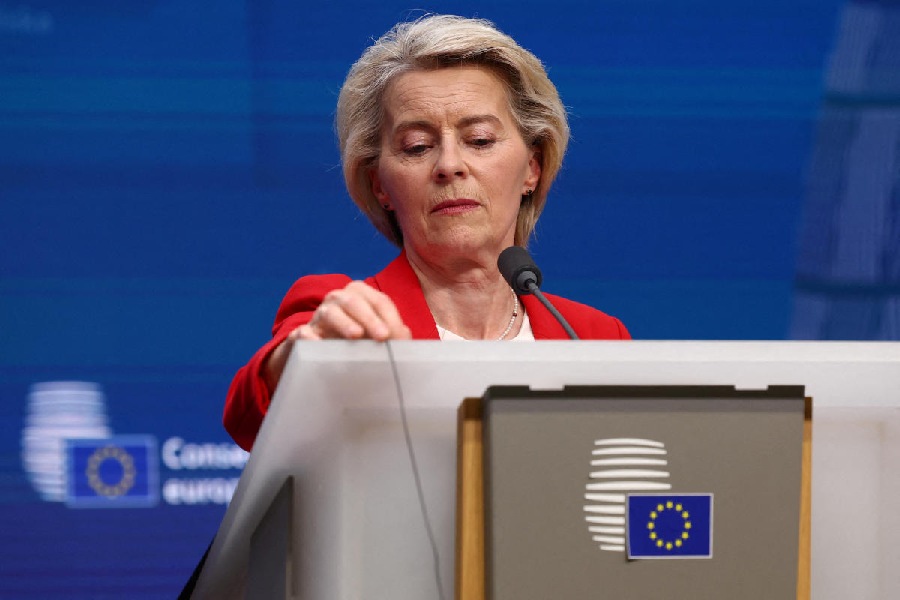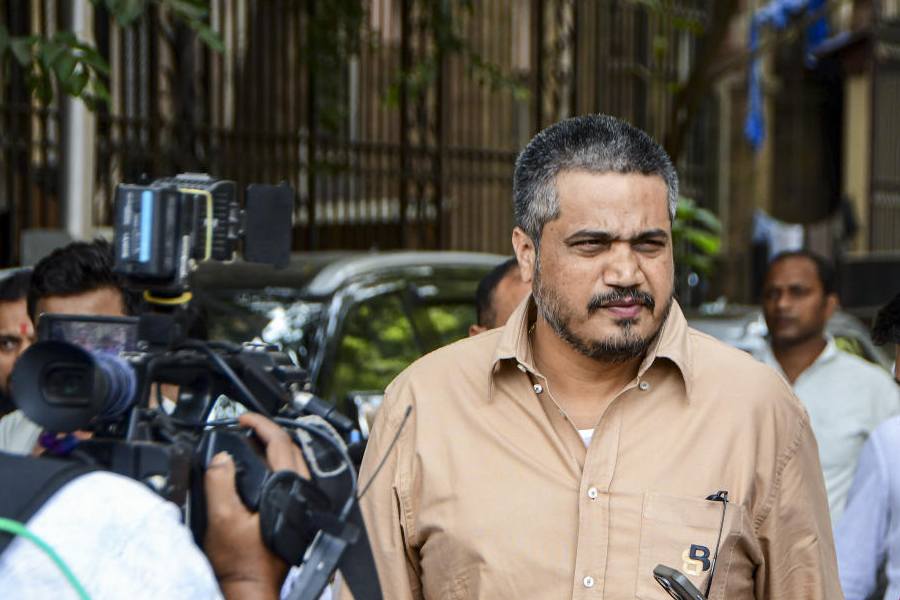U.S. Treasury Secretary Scott Bessent said on Friday the Trump administration's various trade deals with other countries could be done by the Sept. 1 Labor Day holiday, citing talks with 18 main U.S. trading partners and new revisions to a deal with China aimed at expediting rare earths shipments.
After a week where tariffs took a back seat to the U.S. strike on Iran's nuclear facilities and the massive tax and spending bill in Congress, the Trump administration's trade negotiations have picked up. The United States sent a new proposal to the European Union on Thursday and India sent a delegation to Washington for more talks.
"So we have countries approaching us with very good deals," Bessent said on Fox Business Network.
"We have 18 important trading partners. ... If we can ink 10 or 12 of the important 18, there are another important 20 relationships, then I think we could have trade wrapped up by Labor Day," Bessent said.
He did not mention any changes to a July 9 deadline for countries to reach deals with the United States or see tariffs spike higher, but has previously said that countries negotiating in good faith could get deals.
But President Donald Trump told reporters at the White House that he could extend the tariff deadline or "make it shorter," adding that within the next week and a half, he would notify countries of their tariff rates.
"I'd like to just send letters out to everybody: Congratulations. You're paying 25%" tariffs.
NEW U.S.-CHINA EXPORT REVISIONS
Bessent said the United States and China had resolved issues surrounding shipments of Chinese rare earth minerals and magnets to the U.S., further modifying a deal reached in May in Geneva.
As part of its retaliation against new U.S. tariffs, China suspended exports of a wide range of critical minerals and magnets, upending supply chains central to automakers, aerospace manufacturers, semiconductor companies and military contractors around the world.
During U.S.-China talks in May in Geneva, Beijing committed to removing the measures imposed since April 2, but those critical materials were not moving as fast as agreed, Bessent said, so the U.S. put countermeasures in place.
"I am confident now that we -- as agreed, the magnets will flow," Bessent said, adding that these materials would go to U.S. firms that had received them previously on a regular basis. He did not disclose details of the latest agreement, which Trump administration officials said was reached earlier this week.
Efforts to resolve the dispute included a phone call between Trump and Chinese President Xi Jinping which led to teams from both sides meeting again in London, as negotiators try to end a trade war between the world's biggest economies.
China's commerce ministry said on Friday the two countries have confirmed details on the framework of implementing the Geneva trade talks consensus. It said China will approve export applications of controlled items in accordance with the law. It did not mention rare earths.
China has dual-use restrictions in place on rare earths which it takes "very seriously" and has been vetting buyers to ensure that materials are not diverted for U.S. military uses, according to an industry source. This has slowed down the licensing process.
The Geneva deal faltered over China's curbs on critical minerals exports, prompting the Trump administration to respond with export controls of its own preventing shipments of semiconductor design software, ethane, engines for Chinese-made aircraft and other goods to China.
The U.S.-China negotiations have yet to delve into the Trump administration's core complaints about China's state-led, export-driven economic model with just over six weeks to go before the Geneva tariff truce expires on Aug. 10.
News of the latest revision to the China deal comes as Trump has a meeting scheduled Friday with the foreign ministers of the Democratic Republic of Congo and Rwanda, two African nations that are rich in critical minerals.
INDIA TALKS
Indian government sources told Reuters that a trade delegation from New Delhi was back in Washington on Friday aiming to sew up a limited U.S. trade deal ahead of the July 9 deadline.
Trump administration officials frequently count India among countries with which trade talks are at an advanced stage, along with Japan. But early optimism about a simple deal to reduce India's high tariffs has hit roadblocks over disagreements on U.S. import duties for auto parts steel and farm goods, Indian officials with direct knowledge said.
The U.S. Trade Representative's office did not immediately respond to queries on talks with India or the European Union.
Trump said that his administration was looking to get a "full trade barrier dropping" deal with India.
"I'm not sure that that's going to happen, but as of this moment, we've agreed to that -- go into India and trade," Trump said.
PRE-TARIFF SPENDING FADES
The latest negotiating activity comes amid signs on Friday that uncertainty over Trump's tariffs is starting to take a toll on the economy. U.S. consumer spending unexpectedly fell in May as the boost from the pre-emptive buying of goods like motor vehicles ahead of Trump's tariffs faded, while monthly inflation maintained a moderate pace of increase.
But Wall Street investors took the consumer spending data as another sign that the Federal Reserve may resume rate cuts in July, sending stock indexes back to record highs.
Bessent's more optimistic tone on trade also helped shares, and an influential Wall Street economist who had been a skeptic of Trump's tariffs appeared to reverse course.
Torsten Slok, chief economist at Apollo Global Management, asked in a blog: "Has Trump outsmarted everyone on tariffs?"
Slok said that extending the deadline by a year would give countries and U.S. domestic businesses time to adjust to the new world with permanently higher tariffs while reducing uncertainty, which would help markets.










